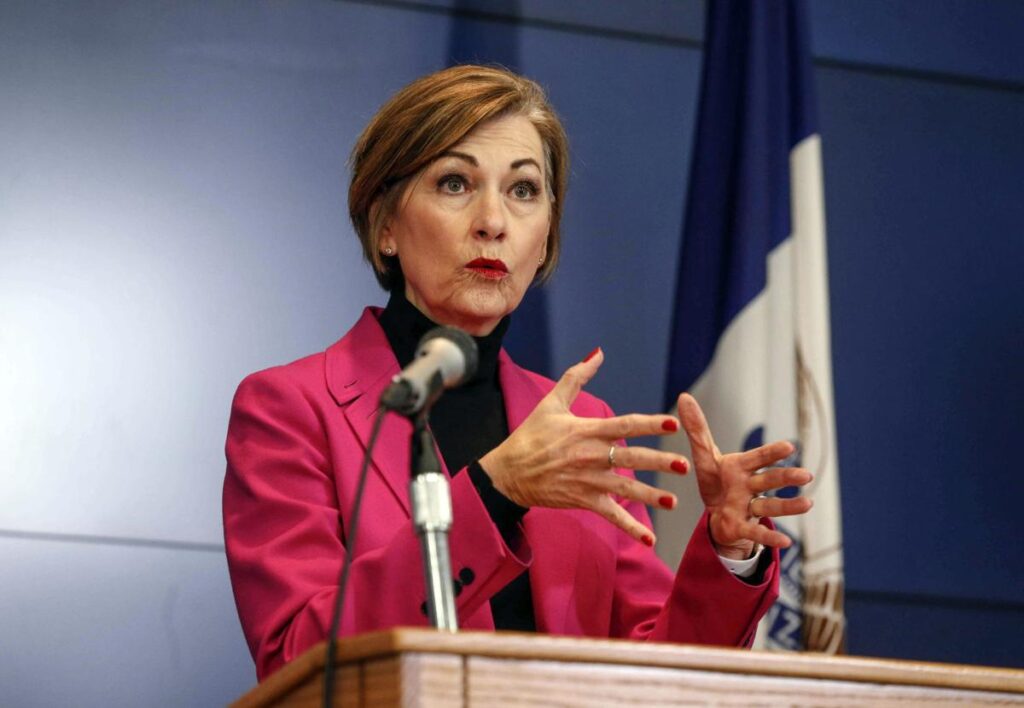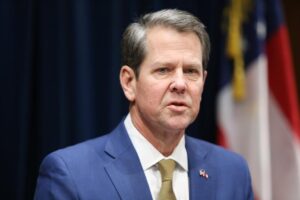Gov. Reynolds’ tax reform ideas are pro-growth

Gov. Kim Reynolds and free market legislators are working to make Iowa a pro-growth leader. Tax reform is a priority for 2022 – and rightly so. Even after successful tax reforms in recent years, more work is needed to bring greater tax relief and make Iowa’s tax code more competitive.
Iowa is in a strong position to enact substantial pro-growth tax reform in 2022. As a result of years of fiscal conservatism, Iowa’s fiscal foundation is sound. In her Condition of the State address, Gov. Reynolds proposed a comprehensive tax reform plan that calls for a 4% flat personal income tax by 2026, gradually reducing the corporate tax to 5.5%, and repealing state taxes on retirement income. These are ideas that would substantially improve Iowa’s economic outlook.
Gov. Reynolds and conservatives in the legislature deserve credit for prudent budgeting. Even prior to the COVID-19 pandemic, Iowa’s fiscal house was in strong condition. As a result of Gov. Reynolds wisely keeping Iowa’s economy open during the pandemic, the economic recovery was quick. Iowa was one of the states that passed a tax reform bill in 2021. This was a result of following fiscally conservative policies.
Currently, Iowa’s budget is running a $1.24 billion surplus and the reserves are full. As a result, the Taxpayer Relief Fund will have over $1 billion for income tax reductions, and this is expected to increase by close to another $1 billion by the end of the year.
“We have almost a billion dollars in the rainy day funds. Another billion in the taxpayer trust fund. Another billion dollar projected surplus in this current budget year, and a huge structural surplus as we brought in almost a billion dollars more than we spent this year,” Senate Majority Leader Jack Whitver said in describing Iowa’s healthy fiscal outlook.
The Revenue Estimating Conference (REC) has forecasted healthy revenue projections for Fiscal Years 2022 and 2023. While temporary federal stimulus dollars that have flooded into Iowa from the federal government have certainly played a role, Iowa’s surplus is a result of conservative budgeting by the legislature.
The pathway to sound tax reform begins with prudent spending decisions. Certainly, the substantial surplus and the healthy revenue outlook provide a pathway for tax rate reductions, but policymakers will need to continue to properly prioritize spending as well.
As Speaker Pro Tem John Wills said, “The time to make Iowa more competitive with transformational tax reform is now with the excess funds in our coffers. Tax reform will make Iowa a more competitive state but, more importantly, it is the right thing to do for the citizens of Iowa.”
Gov. Reynolds understands that Iowa is in economic competition with other states. “Taxpayers win when you’ve got governors that are competing to create an environment that not only helps Iowans and Iowa families keep more of their money, but also to create an environment where businesses want to invest and grow, hire Iowans and really drive the quality of life that we want all Iowans to be able to enjoy,” she said. In the 14th edition of Rich States, Poor States: ALEC-Laffer State Economic Competitiveness Index, Iowa ranks 33rd.
Data from Rich States, Poor States confirms positive migration patterns towards low-tax states – and particularly the nine states that go without a personal income tax altogether. The no-income-tax states have outperformed their high-tax counterparts in terms of key economic measures of success like wage growth and population growth. Of the nine states with no personal income tax, eight experienced positive net domestic migration in the recent 2021 Census estimates, totaling hundreds of thousands of new taxpayers for those states. On the other side of the equation, many of the states with the highest personal income tax rates, like New York and California, experienced massive net domestic out-migration last year.
A serious economic challenge that is confronting Iowa is the need for more people. Iowa’s workforce challenges can be greatly helped with a more competitive tax climate that would help attract more taxpayers.
Policymakers can build on the important tax reforms back in 2018 and 2021 by lowering both the individual and corporate income tax rates. Iowa can look to states such as North Carolina, Indiana, among others that have lowered rates, while providing for the priorities of government. Several weeks ago, North Carolina’s Democrat governor, Roy Cooper, signed into law the budget from the Republican legislature that will eventually reduce their flat personal income tax to 3.99% and eliminate their business income tax altogether.
Since 2018, Iowa has made considerable progress implementing tax reform. This tax reform, balanced with conservative budgeting, has created economic growth and opportunity in Iowa. Gov. Reynolds is placing Iowa taxpayers first with her 4% flat tax proposal.
This article was originally posted on Gov. Reynolds’ tax reform ideas are pro-growth







